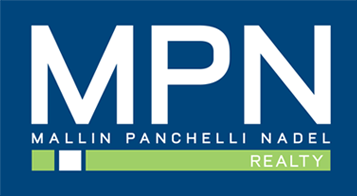PHILADELPHIA — A budding trend in the Center City real estate scene is putting a new twist on the practice of flipping real estate.

While the red-hot real estate market enticed investors to flip — buying condominiums or fixer-uppers in hopes of seeing values quickly rise and then selling them quickly at a hefty profit — another fast-cash practice is catching on in Philadelphia: flipping approved development projects before ground has even been broken.
These types of transactions have long been the domain of suburban developers, who, for example, would buy a 100-acre parcel, take it through the local subdivision process and then sell buildable lots to one or more other developers. Sometimes developers would not only get the land approved for new houses but go as far as to install water and sewerage lines.
“It’s all about improving the value of the land,” said Carl S. Primavera, a lawyer who chairs Klehr, Harrison, Harvey, Branzburg & Ellers’ zoning and land-use group. This traditionally suburban model of improving a plot of land and then selling it has made its way into Center City, Primavera said.
Penn’s Point Riverside Condominiums along the Delaware River in Northern Liberties is a prime example.
White Acre Equities, a New York real estate firm, owns the half-acre-plus property, and has designed and received zoning approvals to construct a 10-story building that will house 68 condos. Penn’s Point is slated to have 71 parking spaces and, once all the units are sold, has the potential of being a $45 million project.
But, White Acre prefers for someone else to construct Penn’s Point and for $8 million, it will sell the fully approved and designed project. Cushman & Wakefield is marketing the development.
In another example, Matrix Development Group, a Cranbury, N.J., developer is quietly marketing its National Products East site at 2nd and Arch streets in Old City, according to industry sources. The project is part of an overall plan to build 300 condos at the old National Products property. The plan was split into east and west phases. The “west” portion was developed by K. Hovnanian of Red Bank, N.J. The east portion calls for 154 condos. Officials at Matrix couldn’t be reached for comment.
This sort of flipping has gotten more prevalent in Philadelphia because the market has been so “vibrant,” said Ken Mallin of Mallin Panchelli Nadel, a commercial real estate brokerage that has been involved in such deals.
“It’s been so vibrant with values increasing, people have been able to do this and make a profit,” he said. “This is a phenomenon of the market and it can only happen in a strong marketplace where there is a lot of development going on.”
While Mallin declined to cite the deals he has been or is involved in, he singled out Old City, and added that all desirable neighborhoods are seeing transactions.
Some developers buy and get approvals for a project without ever intending to sell, but the profit gained by unloading it is so compelling that they end up cashing out, Mallin said.
This version of flipping caters to different types of developers, Primavera said. Some developers see that the market is strong, and, not knowing how long it’s going to last, want to start breaking ground right away without having the delay of waiting for a project to get zoning and other approvals.
“You can’t sell something until it’s approved,” Primavera said. “If you don’t have your approvals and zoning, you’re just a work in progress.”
In another variation, those who took the time to get the approvals may not sell the development right out but invite another developer to join in as a partner, Primavera said. Under that scenario, the original developer gets a slice of the proceeds when the condos sell.
Some builders and savvy real estate investors make this their business. They will buy land, add value to it by gaining zoning approvals and drafting development plans and then sell the package.
For example, Miles & Generalis, which primarily develops lofts in Philadelphia but engages in this type of flipping, bought a parking lot at 13th and Buttonwood streets originally with the intention of using it for parking but figuring it may eventually be suitable for residential development.
“It was worth a couple of million dollars as a 100-car parking lot,” said Alex Generalis, a principal of the firm. “We increased the value with a little piece of paper that has ‘grant variance’ written on it.”
The site has been approved for two loft towers with a total of 150 units split between the two buildings. “Now it’s worth $7.5 million,” Generalis said. “That’s about $600,000 per letter.”
While the developer plans to move on with the project, Generalis leaves it open that it could sell it.
Out-of-towners, who might not have the local connections to identify a viable development site and get the zoning for a project approved in a timely manner, are also attracted to this type of deal.
“In 10 minutes, I had three developers interested in the project,” said Rudyard Porter, a broker with Cushman & Wakefield, about the reaction he received when he sent out an e-mail marketing flier on Penn’s Point.
Two of those interested were from Miami and the other from Fort Lauderdale, Fla., Porter said. “People are looking for a better market,” he said, referring to the condo saturation in Miami and other Florida communities.
“Developers from Boston, New York and Chicago are always calling us because they know Philadelphia is relatively cheap and the permits are there already,” Generalis said.
Natalie Kostelni, Reporter
Philadelphia Business Journal





